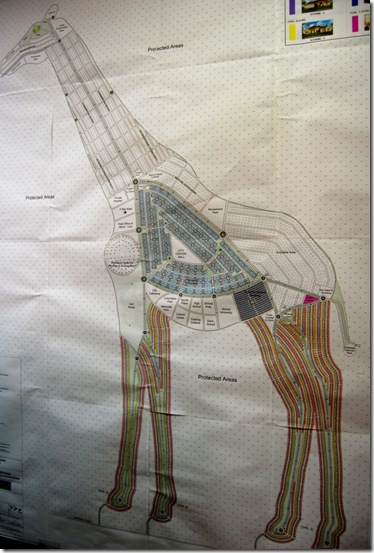How about that for a new name for Southern Sudan?

So fine, after about 42 different people have sent me the link to the Animal City plan story in Southern Sudan, I feel duty-bound, as probably the best economics blog (previously) in Southern Sudan, to comment.
I think I may have actually seen this poster ages ago, or one very much like it, in the office of the Undersecretary for Transport, but not really registered it because I was running around frantically getting stuff signed or getting revisions to budgets or something, and simply dismissed this as yet another bizarre oddity, not really to be questioned.
Anyway I have sympathy for Peter Martell’s view:
Those 'wacky Africans', eh?
The world giggles at those ‘crazy Sudanese’, as though criticizing them for believing a better future is possible.
The key point, that southerners dare to dream of planning their own nation, of providing decent services and housing for the people to replace the towns left in ruins by decades of war against a regime that brutalized this land, is lost behind the patronising international sniggers of the safari shapes.
But what gets me the most though, is those words in the blank spaces around the Giraffe.
Protected Areas.
As if Southern Sudan, probably one of the least densely populated and least urbanised areas on the planet, is in any danger whatsoever of serious environmental degradation through overpopulation, and needs to maintain some kind of green belt around its cities.
Now this is pure speculation, but I think that the warped vision of urbanisation and economic geography held by the Sudanese government is a reflection of the warped vision of urbanisation and economic geography held by the international development community.
Ideas, memes, spread like viruses. Being a new state, a place like Southern Sudan looks outwards to the rest of the world, to its friends and partners who stood with it during the war, to learn.
And by god we have a responsibility not to give them shit ideas.
Rural idylls are generally not idyllic. People generally move to towns and cities because they are better. This is not a bad thing. Spontaneous, slightly anarchic, urban development is not a bad thing. For a good summary go and read the 2009 World Development Report, an annual “state of the profession” report which the profession hasn’t quite caught up with yet.


